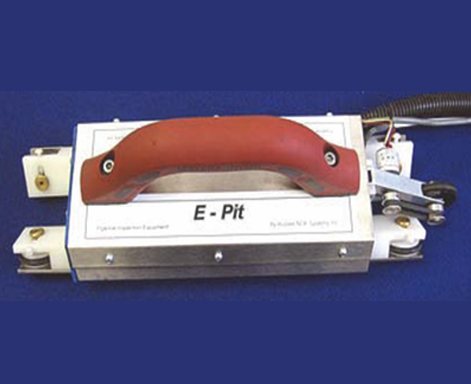Water wall tubes are the backbone of your boiler system, ensuring efficient heat transfer and maintaining optimal operating temperatures. However, these critical components are constantly exposed to corrosion, erosion, embrittlement, and under-scale pitting, leading to potential failures. Traditional inspection methods often have limitations, but RFET (Remote Field Electromagnetic Technique) provides a superior, high-precision solution for assessing the integrity of water wall tubes.
- Email: inspection@trishularobotics.com
WATER WALL TUBE INSPECTION

Ensuring Boiler Efficiency and Safety with RFET Technology
What is RFET and why is it Ideal for Water Wall Tube Inspection?
RFET is based on the through-transmission electromagnetic induction principle, specifically designed for ferrous materials. It utilizes:
- Exciter Coil – Generates an alternating current to induce a secondary low-powered magnetic field within the tube wall.
- Detector Coil – Captures the induced field, measuring phase shift and attenuation to detect wall thickness variations.
Key Benefits of RFET Technology:
- Precise Metal Loss Detection – Identifies internal and external corrosion and erosion early.
- Non-Contact Inspection – No need for couplants, ensuring minimal probe friction.
- Comprehensive Defect Detection – Detects changes in magnetic permeability, helping locate hidden flaws.
- Accurate Thickness Measurement – Measures phase shift and signal amplitude to evaluate wall thinning.
RFET Applications in Water Wall Tube Inspections
RFET enables the early detection of a wide range of potential failures, including:
- Corrosion & Erosion – Identifies material loss before leaks or failures occur.
- Hydrogen Embrittlement – Detects permeability changes that can cause brittleness.
- Thermal & Corrosion Fatigue – Evaluates damage from repeated heating, cooling, and exposure to corrosive environments.
- Bulges & Dents – Pinpoints deformations that may impact boiler performance.
Why Choose RFET for Water Wall Tube Inspection?
- Improved Boiler Reliability – Detects and addresses issues before they escalate.
- Unmatched Sensitivity – Captures both internal and external defects with precision.
- Minimized Downtime – Allows rapid inspection during maintenance cycles, reducing the need for unplanned shutdowns.
- Enhanced Safety & Efficiency – Provides valuable insights for proactive maintenance strategies.

